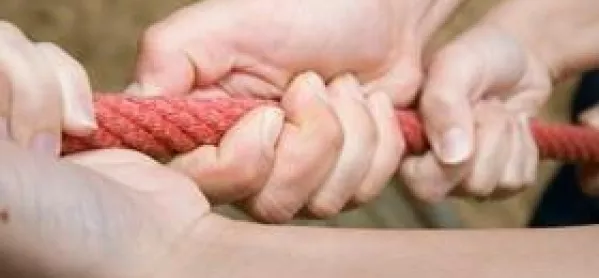Almost nothing is known about the effectiveness of career civil servants who make critical decisions affecting schools, a leadership expert told a major conference in Scotland.
There is a huge body of research showing the benefits of good school leadership, said Carol Campbell, but civil servants retain great influence, despite no literature or empirical base to show that they make a worthwhile contribution to education systems.
“The truth is, we know very little about leadership capacities of government leaders; we know a lot about school leaders and we know a lot about school district leadership,” she said at the annual conference of the British Educational Leadership, Management and Administration Society (Belmas), near Edinburgh.
Professor Campbell, of the Ontario Institute for Studies in Education, said that there was “no clear career trajectory or training programme, no master’s in being a civil servant, and yet these are people managing large organisations, and some of their decisions can have major consequences”.
The Scottish professor, who has also worked in England, cited Ontario’s learning and leadership project, which encouraged teachers to pursue their own research projects. Teachers were trained in leadership and required to publish and share their learning. She said teacher leadership should not be hierarchical, but should rely on “networks of influence” across the education system, from school student to national policymaker.
Delegates heard from the head of an English school that had been struggling before she introduced “whole-school democracy”.
“I believe in working in a team in a classroom, a school and ultimately as a system,” said Alison Peacock, fromWroxham Primary in Hertfordshire. “That’s where you make a difference. When you collaborate, you do things you can’t do on your own.”
Teachers at the school - now rated outstanding by inspectors - had wanted an alternative to a target-setting culture that left school leaders “terrified” of Ofsted, the English schools inspectorate.
Ms Peacock, when interviewed for the job and asked where she would take the school, said her priority was a “happy learning community”. On her first day, she had meetings with children and teachers to find out their priorities.
“We have whole-school democracy,” Ms Peacock said. “Children and adults meet and talk about how things are working.”
Val Corry, formerly headteacher at Stirling’s Balfron High and now an adviser to the Scottish government and Education Scotland, explained how she changed the school’s management structure to “learning and thinking teams”, rather than departments or faculties.
“How do you change that culture?” she asked. “You do it by getting people things to do.” She added: “What struck me is that policy, practice and research mean most to those who create it, and least to those who are not involved.”
Henry Hepburn, henry.hepburn@tess.co.uk.
Photo credit: Getty




